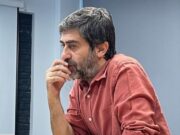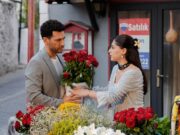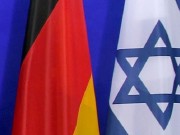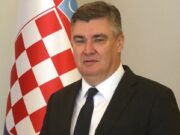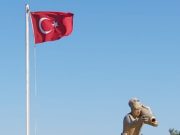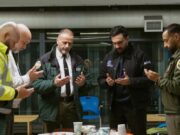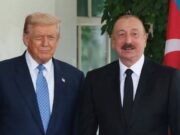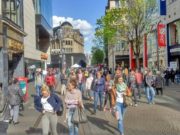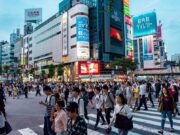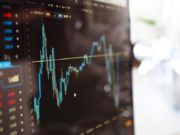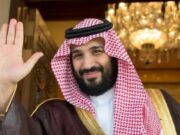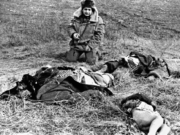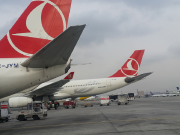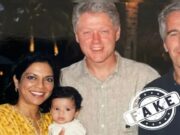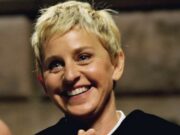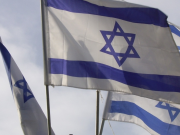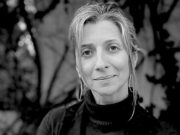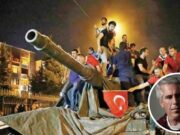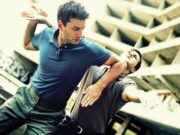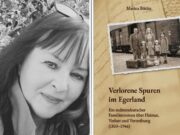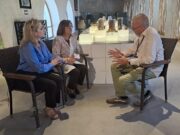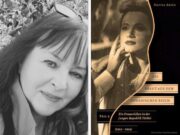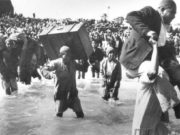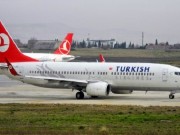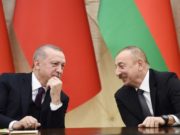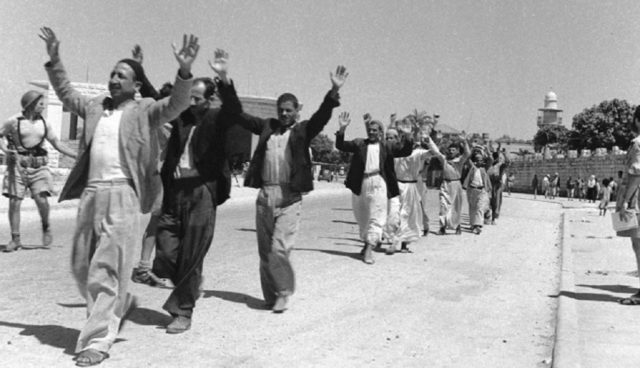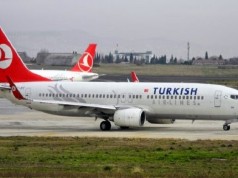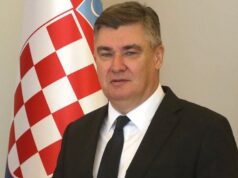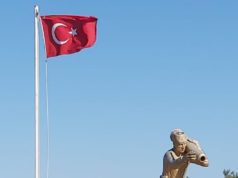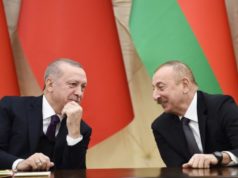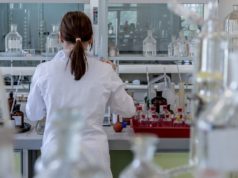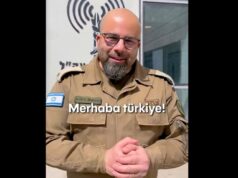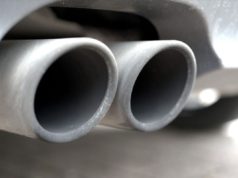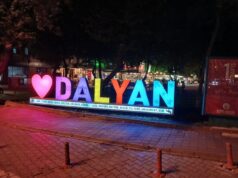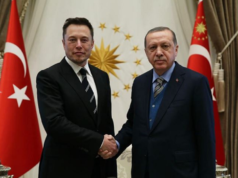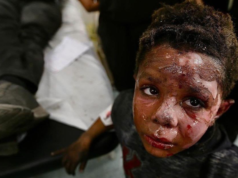A young 35-year-old Palestinian from Jerusalem travels through Germany and discovers surprising parallels to Ramallah in Berlin. In an interview, he talks about art, identity, and his everyday life under occupation.
Çayır: Hello, Would you like to introduce yourself first?
Bilal Al-Qudsi (35): Yes, of course. My name is Bilal (the interviewee’s name and age have been changed for privacy reasons). I am a Palestinian, born and raised in Jerusalem. I lived most of my life – nearly 30 years – in Palestine. For the past five years, I’ve been living and working in Europe. Right now, I’m visiting Germany.
Çayır: How do you like Germany?
Al-Qudsi: I really love it. I’ve been spending most of my time in Berlin.
Çayır: Do you notice any differences or similarities between your country and others?
Al-Qudsi: Well, that’s a very broad question – comparing Palestine to other countries. It’s hard to make a direct comparison because Palestine is quite unique, especially given the political situation. I don’t think many countries experience what we do. That said, of course there are a lot of differences. But when I went to Berlin, I didn’t feel a huge difference, because Berlin is like a bubble. It’s diverse, with people from all over the world.
That reminds me of some cities in Palestine, where you also find a lot of diversity – where foreigners come for internships, or to work with NGOs. So I’m familiar with that kind of ‘bubble.’ That’s why, when I go to Berlin, I don’t feel very far from Ramallah – which is also a city I lived in back in Palestine – in terms of diversity and the people around.
Çayır: It’s surprising to compare Ramallah with Berlin.
Al-Qudsi: Yeah, basically, the same people you see in Ramallah are the ones you’ll run into in Berlin.
Çayır: Many artists and musicians come to Berlin. How does that compare to Ramallah?
Al-Qudsi: Yes, and that’s actually one of the similarities I noticed. Ramallah is also known as a place where musicians gather and hang out. It’s a city that offers many opportunities to showcase your art because it’s very artistic. There’s a theater, and all the movie directors often hang out there.
There are plenty of cultural centers where people come together, and a lot of musicians perform live music. One artist I’d like to mention is Shadi Zaqtan – he now lives in Berlin. He’s a Palestinian singer who composes blues and jazz, blending them with Palestinian folk music. It’s hard to explain with words alone; you really have to listen to his music to understand. So, for anyone reading this interview, I definitely recommend checking out his work.
Çayır: You talked about music. What about poetry? And the freedom of speech?
Al-Qudsi: Freedom of speech is part of our culture, especially through poetry and music. But in reality, it’s often limited. Criticism isn’t always tolerated, and occasionally people risk harassment or even arrest. Under occupation and political pressure, many still speak — but usually with caution.
Çayır: Do you think that people in Germany are aware of what’s really happening in Palestine?
Al-Qudsi: I meet a lot of people in Germany – they’re very nice people, very lovely people – but they really don’t know what’s happening. They have different views, and I believe that maybe certain news is being blocked from reaching them.
Because whenever I sit with people here and just tell them what’s going on, they’re like, “What are you talking about? Is this really happening?” So yeah, I believe the media is playing a huge role in shaping how people understand – or don’t understand – what’s actually going on.
Çayır: In the media it’s frequently portrayed as a religious conflict. But isn’t that a cliché?
Al-Qudsi: Yes, it absolutely is a cliché, because the root of the issue has very little to do with religion. The state of Israel claims Palestine based on a promise supposedly made thousands of years ago. However, the founders of Israel were not motivated by religion – in fact, many of them were atheists. Isn’t this religious hypocrisy?
Moreover, the media often misrepresents Palestine, portraying it as a religious Islamic state and even comparing it to groups like ISIS. But Palestine is not an Islamic state. It is actually the land where Jesus was born – a place with deep significance to multiple faiths.
It has historically been a diverse society, where Jews, Muslims, and Christians have lived together in harmony. Calling this situation a „conflict“ actually diminishes its severity. A conflict implies a dispute with relatively balanced parties and losses, like neighbors arguing over a parking spot. What’s happening in Palestine is much worse – it is genocide, with a capital G.
Çayır: Even the World Court ordered the prevention of genocide against the Palestinians in Gaza! But are there any areas in Palestine where life goes on normally?
Al-Qudsi: I wouldn’t say life really goes on normally. On the surface, maybe it looks like it does, but deep down, it never truly does. Every single day is lived under occupation. That said, the nature of this occupation varies between different areas, which makes the situation in Palestine very complex and hard to understand unless you experience it firsthand. Words alone can never fully convey it.
Çayır: Could you describe what life is like in the different parts of Palestine today? How do conditions vary between areas like Jerusalem, the West Bank, and Gaza?
Al-Qudsi: Palestine is essentially divided into four major areas. Within the 1948 borders of Israel live Palestinians who remained after the Nakba and hold Israeli citizenship; they identify as Palestinians but are legally Israeli citizens.
East and West Jerusalem, however, are different: people there live under Israeli occupation without Israeli citizenship. As an East Jerusalemite, I receive travel documents – not passports – including a temporary Jordanian travel document from when Jerusalem was governed by Jordan, which allows travel through Jordan but is not citizenship, and an Israeli laissez-passer.
It’s a French word, which means “let him go”. This document permits residence in Jerusalem and use of Tel Aviv airports. Despite these, we are not citizens and require visas for other countries, granting limited rights without full citizenship. The West Bank is governed by the Palestinian Authority.
The people who live there hold Palestinian passports, but they still live under occupation. They face constant harassment and attacks from Israeli settlers, who continue to expand beyond the 1967 borders. These settlers forcibly remove Palestinians from their homes and villages to build illegal settlements – with little to no accountability.
Çayır: You mentioned that Palestinians have lived in harmony. Can I ask – do you have Israeli friends? Are they also open-minded? Are there movements for peace within Israeli society?
Al-Qudsi: Basically, I don’t have any close Israeli friends, but I lived in Jerusalem most of my life, so I have a sense of how people there think.
I believe there are many Israelis who are part of anti-Zionist movements. Personally, I think those people can actually make a difference, because they are part of Israeli society – they come from within. They can spread awareness in many ways – peaceful, politically and creative. So yes, I truly appreciate the anti-Zionist movement.
Çayır: Do you think Israeli society itself is divided in how people think about the occupation and the treatment of Palestinians?
Al-Qudsi: I do believe that, like in any society, Israelis are also divided. Some are very invested in what’s happening and even happy about it, while others just want their loved ones back. Then there are those who genuinely believe in the Palestinian right to exist.
They admit that something was taken that wasn’t theirs to begin with. What I find especially worthy of respect are those Israelis who live outside of Palestine and still speak out about these issues.
But – and this is just my humble opinion – if you acknowledge that the land was taken unjustly, and you still choose to live there, I have to ask: What are you doing in a stolen house? I mean, thank you for your support and solidarity – but if you truly believe that it’s not yours, why stay?
Çayır: Hannah Arendt once warned that Zionism, if driven by nationalism rather than universal justice, could become a cover for exclusion and domination rather than true liberation. Do you think her warning has come true? Is Zionism today being used as a political cover, rather than a moral or humanitarian cause?
Al-Qudsi: To me, it’s very obvious. And honestly, I’m often shocked that people are still buying into this narrative. It’s right in front of us – you don’t even need to do much research. If you’re a religious Jewish person, I’m quite certain your faith doesn’t tell you to kill. The Torah doesn’t instruct anyone to commit these kinds of acts. So, I don’t understand why we’re still debating this – it should be common sense.
Çayır: After witnessing so much injustice, has your view of human nature or belief systems changed? How do you make sense of the way people justify violence – even when their own religions teach peace?
Al-Qudsi: What really changed for me, especially after everything that has happened, is how I think about human thought itself. I started asking: How are people thinking? There are basic truths that seem so clear, and yet people continue to deny them. That shook my faith in human reasoning. I’ve developed real trust issues with how the human mind works.
It’s unsettling. I find myself wondering: Why are we still even talking about this? It’s so painfully obvious. And really – what religion justifies violence? What genuine spiritual tradition tells you it’s okay to kill, even a fly? None. I’m sure of that.
Whether it’s Buddhism, Hinduism, Islam, Christianity, or Judaism – they all teach peace at their core. If you truly read these texts, you’ll see they share the same fundamental principles. The details may differ, but the ethics are the same. There is no true religion that tells you it’s okay to kill another human being.
Çayır: Yeah, absolutely.
Al-Qudsi: Even if God promised you the land, there must be another way.
Çayır: I once read a saying about Jesus – it said he didn’t conquer the land, he conquered the hearts.
Al-Qudsi: The hearts?
Çayır: Yes – the hearts.
Al-Qudsi: There we go. By all means, conquer my heart — and take my land.
Çayır: Maybe that’s the turning point—maybe it’s time we looked deeper into the hearts of people.
Al-Qudsi: I don’t believe that Palestinians would have turned them away if Jewish people had come to Palestine simply seeking refuge
In fact, that’s exactly what happened – many came looking for safety, and the people here welcomed them. They said, “Yes, of course. This land is for everyone.” But then came the betrayal. We were simple people – villagers, farmers – living modest lives. And suddenly, people arrived from Eastern Europe with very different ways, with very different intentions. It felt like we were two completely different worlds colliding.
Çayır: Today, some draw comparisons with Nazi Germany – particularly in terms of an increasingly aggressive and militarized system. For many, it presents a tragic paradox: Israel, a state born out of Jewish suffering, is now seen as a source of suffering itself.
Al-Qudsi: Yes, but it’s not just about the Nazis. What’s happening connects to so many stories throughout human history. If you go back to the very beginning – to the story of Adam and Eve’s sons – Cain and Abel – you see the same pattern: one brother killing another out of jealousy and fear. It’s the same core. Whether it’s the Nazis or Cain and Abel – it all comes from the same root: evil, hatred, selfishness. That’s how I see it. And I see it this way because I’ve lived it.
Çayır: You mentioned that the occupation isn’t limited to Gaza.
Al-Qudsi: I can tell you – it’s everywhere. It’s not only physical. For people like me, living in Jerusalem, it’s deeply psychological too. You feel it constantly. Every time I try to cross from one place to another, I’m treated with disrespect, suspicion, even humiliation. If you try to defend yourself or speak up, you could get shot.
Çayır: That’s a devastating reality. Have you personally witnessed or experienced situations where someone was punished simply for speaking up or trying to assert their rights?
Al-Qudsi: There was a young man in Jerusalem named Eyad al-Hallaq. He had special needs. If I recall correctly, he was autistic. Eyad and his teacher were on their way to the Elwyn El-Quds Center, which provides services for children and adults with disabilities. They were approaching a checkpoint — one that was part of Eyad’s daily route from his home in the East Jerusalem neighborhood of Wadi al-Joz to the special education center in the Old City, which he had been attending since 2014.
As he walked through the archway, the officers on duty became suspicious when he reached into his pocket to look for his phone. He apparently didn’t understand the officers‘ shouted commands to stop, and instead ran away on foot, hiding in a garbage storage room.
His teacher tried to explain to the police that Eyad was disabled and attempted to verify his identity, but the officers opened fire and killed him on the spot. His mother still cries to this day. I invite anyone to Google his name – just type „Eyad al-Hallaq.“
The soldier who shot him was briefly taken into custody, but was later declared innocent. They said he had a mental illness. And now he walks free. How can that be acceptable?
I think about this boy often. My heart aches every time I remember him. He was just a child. And as far as I know, he was his mother’s only child. Imagine that:
A mother raises a child with special needs, devotes herself with love – and one day, he’s gone. Just like that. For no reason. I truly believe that stories like this are enough to make any rational, compassionate human being understand what’s happening here. You don’t need politics. You just need a conscience.
When we look at history, we see that the crimes of Nazism were only ended by a world war – not by words, but by military intervention. Germany is still grappling with the racist ideologies that made those horrors possible.
Looking at Israel today, the question is: what does the future hold? Many hope to avoid another world war. But there are voices saying that some groups are benefiting from this ongoing conflict – and may even be willing to risk another war.
Some people are making a lot of money from this war. There are even those who bet on it – on human suffering – as if it were a sport. They make millions while we sit here and talk. That’s the reality. And that’s what makes it so hard to fight against. You don’t even know where the roots of all this are.
Something new happens every day. Personally, I don’t understand this game. I really don’t. That’s why I’ve never spoken about politics before – maybe this is the first time in my life that I’m truly speaking out.
But I’m confused. I’m afraid. I’m tense. And even though I’m no longer physically in my homeland, I don’t feel safe or stable – because my heart is still there, with my people.
Çayır: Do you still believe there’s hope for the future? That one day Palestine could be free from these attacks and this ongoing violence? Where do you think the politics are heading?
Al-Qudsi: You never really know where politics are going. Some people might be pleased with what’s happening – and there could be others, people we don’t even know, in places we’d never expect – maybe even in Cameroon – who, for some reason, are involved in this. So, I honestly don’t know.
For me, personally, I’ve never been involved in politics. I’ve never really spoken about politics. So, I feel like a child sometimes – like I’m watching something I don’t fully understand. One day I feel hope, and the next day it’s gone. It’s like a big game, and I don’t know the rules.
I used to believe that there could be hope in anything. But after what’s happening now, I’m really confused. Still, I hold on to the dream – that I will one day witness a free Palestine, from the river to the sea. That’s my hope. That’s my dream.
Zum Thema
– Yair Golan-Äußerungen –
Mord an Israelis in Washington: Oppositionsführer beschuldigt Netanjahu
Yair Golan, Vorsitzender der israelischen Mitte-Links-Partei der Demokraten und ehemaliger stellvertretender Generalstabschef der israelischen Armee, wurde am 7. Oktober zum Helden, als er auf eigene Faust Menschen vor der Hamas rettete
Mord an Israelis in Washington: Oppositionsführer beschuldigt Netanjahu
